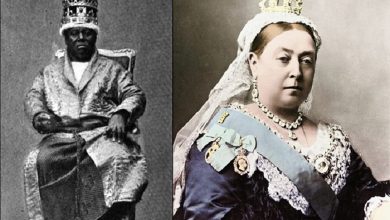These Queens whose lives ended for unexpected reasons

The life of queens, which was so different from the life of commoners, ended, nevertheless, in the same way: in difficult childbirth, from the attack of a contagious disease or cancer. But there were also exceptions. Some queens died in such a way that their death surprised people for a long time.
Drug overdose
Henrietta Maria, the youngest daughter of the French king Henry IV, who died by chance in a tournament, and wife of the English monarch Charles I, who was executed in a coup, lived a relatively long life and died due to a medical error. At that time, she lived near Paris. She began to suffer from migraines and insomnia, and doctors offered her an opium-based medicine – both sleeping pills and pain relief. However, cases of overdose were so frequent that the queen refused: they say, poison more.
Then the doctors offered her another medicine, supposedly worse, but without opiates. The queen accepted him and died. Naturally, the basis was, in fact, the same opium, and the doctors still poorly calculated the dose, and as a result, the queen took part in the deadly lottery.
Passion for a healthy lifestyle
At least two queens fell victim to love for a healthy lifestyle. In the Middle Ages, horseback riding was considered the best gymnastics for women, and the Queen of France, Isabella of Aragon, decided that riding also strengthens during pregnancy. But it was tough to maintain balance in the ladies’ saddle (in which the woman sits sideways), and during the next ride, the queen fell from the horse. As a result, she began to give birth prematurely and died from complications.
Elisabeth of Bavaria, the wife of the Austrian Emperor Franz Joseph I, adored long walks, walked quickly and, in order not to choke, wore particular sports, softer instead of the usual rigid corset. During one of the walks along the Geneva embankment, she attracted the Italian anarchist Luigi Lucheni, who immediately realised that in front of him was an aristocrat.
Luigi walked over and very quickly punched the older woman in the heart with a sharpener. The empress did not even understand what had happened; it seemed to her that she was pushed. Elisabeth got up from the ground and walked on but soon felt an acute weakness and pain in her heart. She died in the arms of her maid of honour, right on the ill-fated embankment. Many are sure that if she had worn a regular corset, the assassination attempt
Acute mental pain
For a long time, the three queens were considered victims of severe depression or, as in those days, acute mental pain: Queen Margaret’s mother, Catherine de ‘Medici, Queen Elizabeth I of England, and Mary Tudor, the French queen of English descent.
The last two suffered from depression, but Catherine knew that the autopsy revealed advanced pleurisy. The version about death from mental pain probably expressed the expectations of society – after all, the sons of Catherine died one after another, barely having time to take the French throne.
From piety
Another Isabella of Aragon (there were more than one of them, like Anne of Austria), died an hour after giving birth, but, for the sake of variety, not from complications. The fact is that she relied very much on God’s help in this challenging female matter, and throughout her pregnancy, she kept strict fasts, whipped herself with a whip for greater piety and constantly travelled to holy places. By giving birth, she was seriously emaciated, and she did not have the strength to survive them. Her son was born very weak and died at two years old.
From a dissatisfaction with subjects
The warlike queen of the Frank, Brünnhilda, fell prey to war weariness. When she tried to rule on behalf of her great-grandson, as she once led her son, the Franks realised that wars would begin again between everyone and everyone (as already happened) and declared Clotar II their king. And Brunhilda, accordingly, was overthrown. If the times were more civilised, she would have been sent to a monastery; people solved any problem in the most bloody way in the early Middle Ages.
Brunhilda was quickly accused of organising a series of political assassinations and tied the legs to a wild horse. She rode off into the fields, carrying the deposed queen to her native places. Brunhilda was about seventy; by the standards of her time, death could not be called very premature, but she never ceases to be cruel.
The chosen Chlothar, by the way, was the son of the eternal military adversary of Brünnhilda, Queen Fredegunda. And, unlike Brünnhilde, Fredegonda organised many political assassinations, including the husband of Brünnhilda, King Sigibert. But she died peacefully in her bed.




